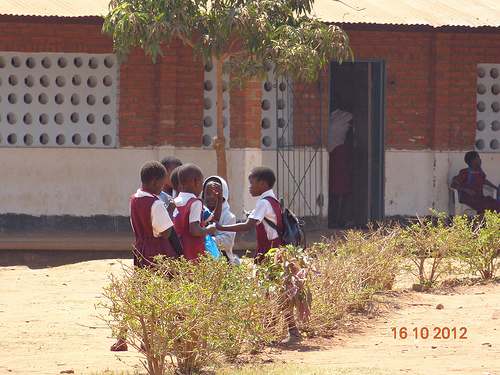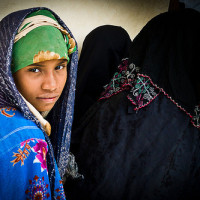“All Children Reading” Grant Competition to Fund Literacy Programs
 In developing countries, one child out of every four remains illiterate. To facilitate literacy efforts, the U.S. Agency for International Development (USAID) partnered with the Australian government and World Vision to announce a literacy grant competition, the All Children Reading: A Grand Challenge for Development. This competition offers $2.7 million to innovative programs and educational tools that utilize technology capable of improving global child literacy.
In developing countries, one child out of every four remains illiterate. To facilitate literacy efforts, the U.S. Agency for International Development (USAID) partnered with the Australian government and World Vision to announce a literacy grant competition, the All Children Reading: A Grand Challenge for Development. This competition offers $2.7 million to innovative programs and educational tools that utilize technology capable of improving global child literacy.
“Two hundred and fifty million children in the world are unable to read–an unacceptable fact that will limit their potential for the rest of their lives. We are calling on entrepreneurs and innovators around the world to focus on this challenge and design groundbreaking new technologies and approaches that open doors of opportunity for every child everywhere by giving them the power to read,” announced Rajiv Shah, USAID Administrator.
This is the second All Children Reading grant competition, with the first having launched in 2011 to assist the world in reaching the 2015 Millenium Development Goal of universal primary education. The competition seeks to reward low-cost, mobile and technology-based educational tools that facilitate reading and empower students. Its particular focus is upon three main areas: children with disabilities, family and community engagement, and mother tongue instruction and reading materials.
“Literacy is the cornerstone of economic and social development—171 million people could be lifted out of poverty if all students in low-income countries left school with just basic reading skills, yet millions of children lack access to necessary tools. All Children Reading: A Grand Challenge for Development has taken on this challenge, and can strengthen global literacy rates with the help of solvers from around the world,” explained Christie Vilsack, Senior Advisor for International Education for the USAID. ”
Although the world has made significant progress toward increasing school enrollment, a large number of children in schools fail to learn even the most basic math and reading skills. This has resulted in a global educational crisis. Due to ineffective and low-quality education offered at many schools, governments waste precious funds. If educational reforms could provide all students in developing countries with basic reading skills, global poverty levels would fall by 12% or 171 million people.
Creative Commons Love: Abhi Sharma on Flickr.com
Written by Amanda Lubit









